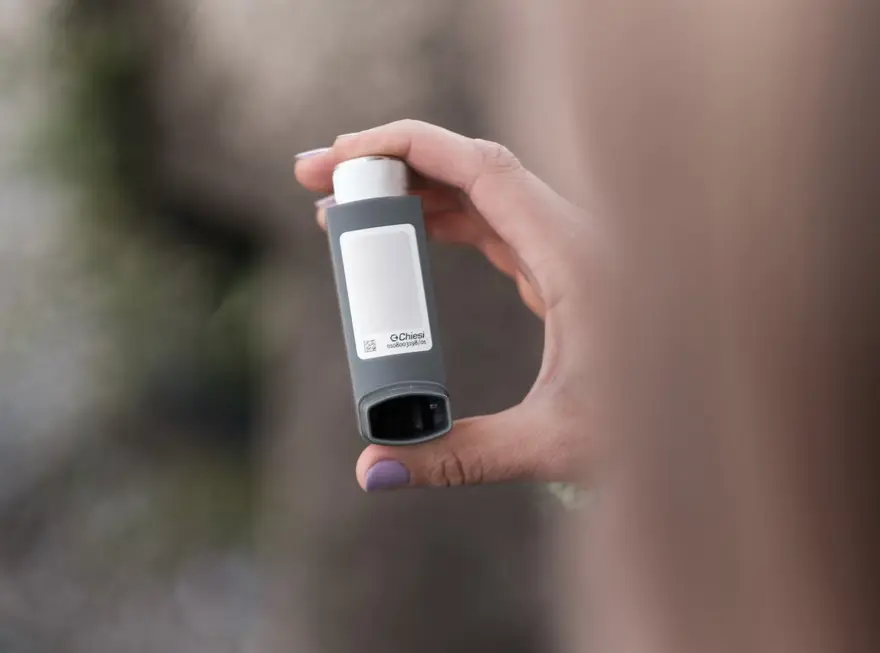monsoon healthy tips
Monsoon Diseases Prevention: Simple Health Tips to Stay Monsoon Ready
There starts the drizzle and here we start craving for the pakodas and waiting for the rain dance! Monsoon and rains have got such a positive and refreshing vibes that you can’t help but plan to sneak out from your daily (& monotonous) routine.However, with those rain showers, comes humidity and an environment that may promote growth of microorganisms and put you at risk of developing various health ailments. From seasonal cough and cold to stomach infections, from mosquito-borne diseases to liver inflammation- are all the repercussions of not taking enough care of yourself during monsoon.Fighting a fever and not sure what is causing that? Find out the culprit with our all-new Fever panel tests. Here, we have enlisted simple yet important health tips that keep you monsoon ready (and disease free). Take a look! 1. Increase your vitamin C intake You must have noticed that rain is the time of the year when viral fever, cold, and allergic reactions are most prevalent. To help keep these infections at bay, one thing that you must have is a strong immunity. There isn’t an exact definition of “how strong” your immune system should be to fend off germs but it is an established fact that people with a healthy immune system seldom fall sick as compared to people who have a weak immunity. That’s where vitamin C can be helpful- to keep your immune cells healthy. It is one of the most important immunity-boosting nutrients. Several studies have stated that vitamin C can prevent colds in some specific cohorts. Splurge on those oranges, lemons, fresh green vegetables and broccolis to have a Vitamin C rich diet. 2. Make sure you take enough fluids (even without feeling thirsty) The weather being cool, you may not feel thirsty often. However, ensure to drink plenty of water during the monsoon. Most people sweat a lot due to the humid weather of the rainy season and miss replenishing fluids. Keeping well hydrated helps flush out toxins from your body too. Nevertheless, stay vigilant of the type of water you drink. Many illnesses like hepatitis A, typhoid, cholera are waterborne and quite rampant during the monsoon season. If you aren’t sure of the water quality in your area, boil the drinking water to kill disease-causing germs and eliminate other impurities. Get your water filters serviced on time so that they do their job effectively and you get clean drinking water. 3. Had a rain dance? Get a shower at once Do take a relaxing warm water bath to disinfect your body after getting drenched in rain or playing in the puddles. It decreases the risk of catching skin and fungal infections. Add a disinfectant to bathing water if possible. 4. Stay protected of mosquitoes Continuous rains and improper drainage allow water to accumulate and serve as a breeding ground for mosquitoes. These tiny insects are well capable of giving you serious health troubles including malaria, dengue, chikungunya, etc. Ensure that there is no open water storage in your home. Change and clean water of coolers. Wear full-sleeve clothes and use mosquito repellents. Using mosquito nets is also a good idea. 5. Don’t let monsoon lure you into street food You aren’t sure what type of water your favourite street food vendor has used while preparing that aloo chaat. You cannot guarantee how well he would have washed the vegetables that go into the bhaji. Also, the food items can be exposed to the open air. Every time you fall for a street food item, you are more likely to contract a gut infection. 6. Clean your raw fruits and vegetables well Scrub your fruits and vegetables under running water thoroughly. Germs may thrive on the skins of fruits and vegetables. Try consuming well-cooked or boiled vegetables. It is not necessary to use a vegetable wash but washing vegetables and fruits in warm saline water is a good practice to follow. 7. Keep yourself physically active within home Rain and COVID situations might not allow you to venture outdoors. But, remember exercising not only helps you maintain weight, but it is great for your immune system as well. It improves your blood circulation and triggers release of the happy hormone (serotonin). You can try side stretching, jumping rope, yoga asanas, and dance. 8. Hand hygiene is crucial not only for COVID but also for monsoon illnesses Your hands are the main mode of transferring germs into your body. Wash or sanitize your hands before you eat something or even during travel. It is not only important for preventing spread of COVID-19 but also to keep other communicable germs at bay.COVID is far from over as yet!. Make sure to get tested if you experience the symptoms. Book a home sample collection here.A little care goes a long way in helping you stay healthy during monsoon. Make sure to prioritise your health and enjoy every season to the fullest.Explore preventive health checkups here.
Monsoon Health Tips | How to have a Healthy Gut
The occasional showers and chilly winds! And relief from the hot scorching heat. Monsoon has got all of it to make you crave for some delicious food items. Are you also yearning for a plate full of hot pakodas with your evening cup of tea on most of the days? Not minding to binge on fried foods? Well, rains are a good time to relish savoury meals, but they also necessitate eating healthy and clean food. Water stagnation and high moisture content in the environment can cause it to act as a season filled with infections and diseases. So, if you want to enjoy the monsoon, it is important to eat healthy and nutritious meals. Here are a few healthy tips for monsoon on how to keep your gut healthy and happy Do’s of Monsoon Diet Opt for seasonal fruits, such as litchi, Indian blackberry (Jamun), pomegranates, peach, and plum. While the seasonal fruits will impart the goodness of nature, non-seasonal fruits might be ripened through artificial techniques. Eat steamed salads instead of raw vegetables. Wash vegetables properly before steaming. Improper washing can lead to various bacterial and viral infections. Certain digestive conditions can also cause rise in levels of liver enzymes. Any such rise may indicate inflammation or damage to cells in the liver. Track your liver health with the help of a liver function test. Add desi Indian drinks such as Aam Panna, Sattu, Chach, in your daily diet. Refrain from sodas and cold drinks. They add calories with zero amount of other nutritional elements. Include herbal teas in your daily diet. Green teas and herbal teas are a rich source of antioxidants that helps prevent cell damage. Antioxidants are required for repair of skin, hair and other body cells. Go for fermented dairy products like yogurt and curd in place of ice creams. They aid in digestion and reduce bloating. As per Ayurvedic experts, the best time to have fermented dairy products like these can be after lunch. Some people might catch a cold and cough due to consuming curd at night. Don’ts of Monsoon Diet Say strict no to roadside food or meals prepared with low hygiene. These can harbor infection-causing germs and hamper your gut health. Save that spread of samosa, kachori, and pakodas for only some special times. Fried foods may appear very tempting but the high oil content can interfere with the normal functioning of your digestive system, might slow the movements of digestive organs, and delay gastric emptying. These can further cause bloating and heartburn. Eating food that has high content of fats, specifically saturated and trans fats, can cause a rise in cholesterol levels and raise your risk of several heart conditions. The first step to a healthier heart is to get your cholesterol and triglycerides levels checked periodically. A lipid profile test is a panel of blood tests that screens your body for lipids, such as cholesterol and triglycerides. Avoid salty foods items or eat in moderation. Too much salt can cause fluid retention and uneasiness in the stomach. You need to take special care if you have been diagnosed with high blood pressure. Eating meals that are uncovered or prepared with dirty unwashed hands may spread many germs. Always cover your food to save it being infected by flies. Wash hands with soap before preparing and eating every meal. Limit your intake of caffeinated drinks like tea and coffee. Too much of such beverages causes dehydration in the body. They can also interfere with the normal sleep pattern in some people, when consumed in late evening or nighttime. Dehydration can cause your body to lose important electrolytes. Electrolytes include salts and minerals, such as sodium, potassium, chloride and bicarbonate. An electrolyte imbalance can interfere with normal functioning of your body. Get Electrolytes Test Done here. Avoid eating seafood during the rainy season. It is very common for water bodies to be polluted with sewage, thus there are more chances of sea creatures being exposed to these pollutants. Also, monsoon is the breeding season for the fishes. You are not letting nature restock what you have been taking out. Most importantly, most fish sold in monsoon are pre-packaged or stored. Storing fish for longer periods can reduce its nutritional value. The last and yet the most important in the list is to not use contaminated water. Always ensure that your water should either be purified or boiled. Avoid Ice from non-distilled water, kulfis and golas to keep stomach upset and food poisoning at bay. Contaminated water can spread a plethora of infections, including hepatitis A and E viruses. These viruses cause swelling (inflammation) in your liver. The signs and symptoms of these liver conditions do not appear until the virus has passed 2-3 weeks inside the body. Doubt water quality in your area and have symptoms like fever, fatigue, or pain in the abdomen? Get tested for hepatitis now and seek medical assistance if required. Following these simple healthy tips will help you limit your exposure to many germs that may give stomach infections. Keep nutrition always above taste. Hoping you and your loved ones have a happy and healthy monsoon with these monsoon diet tips.















 WhatsApp
WhatsApp